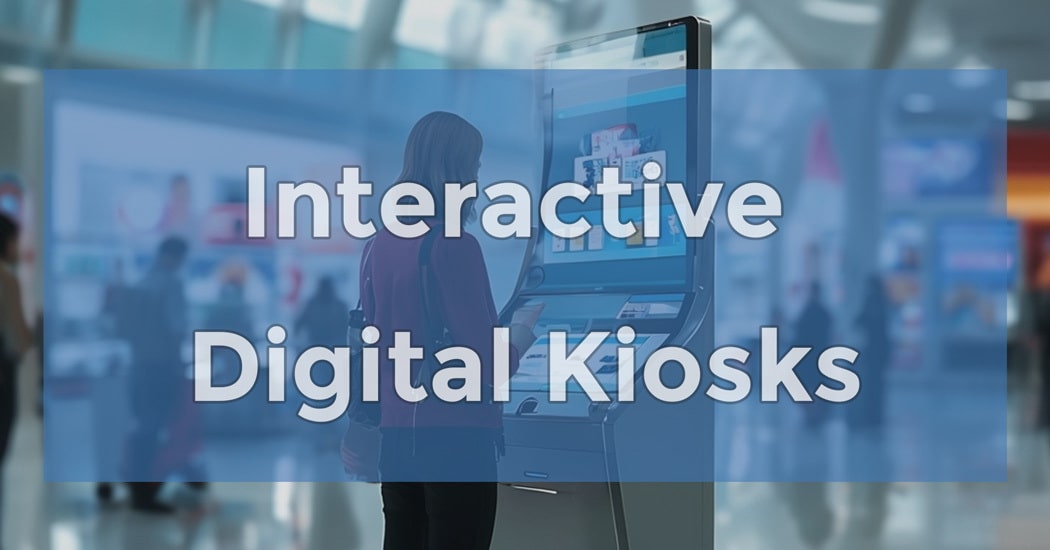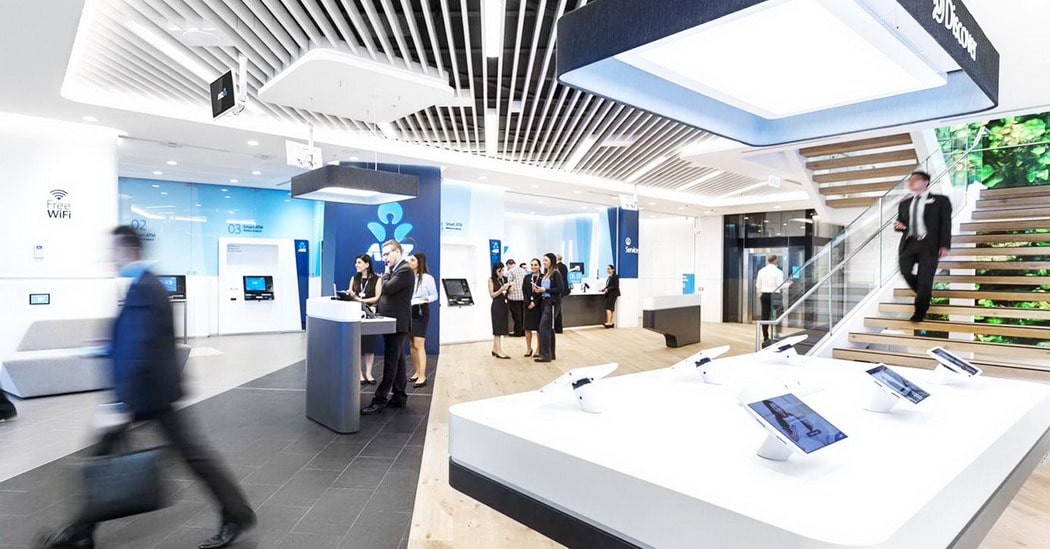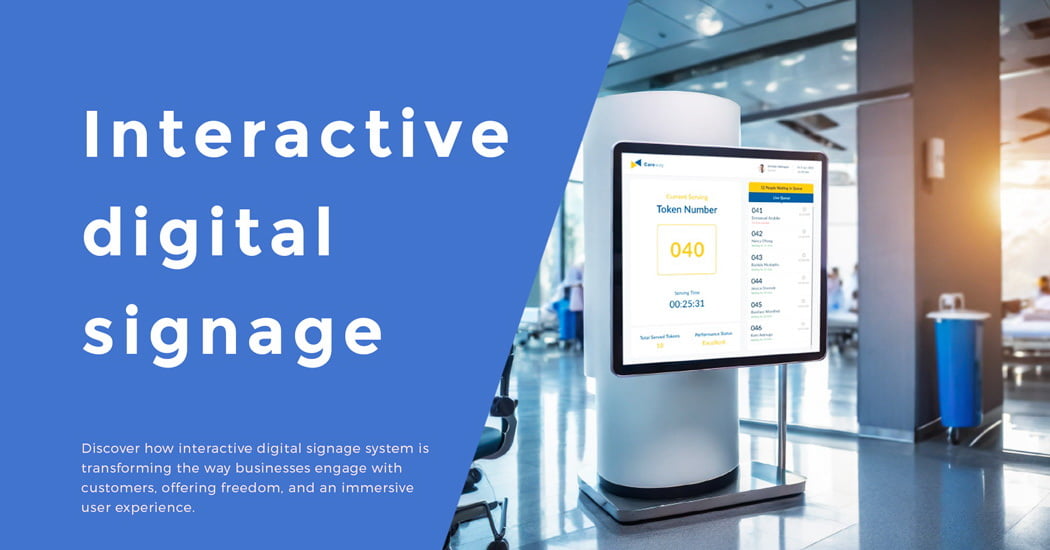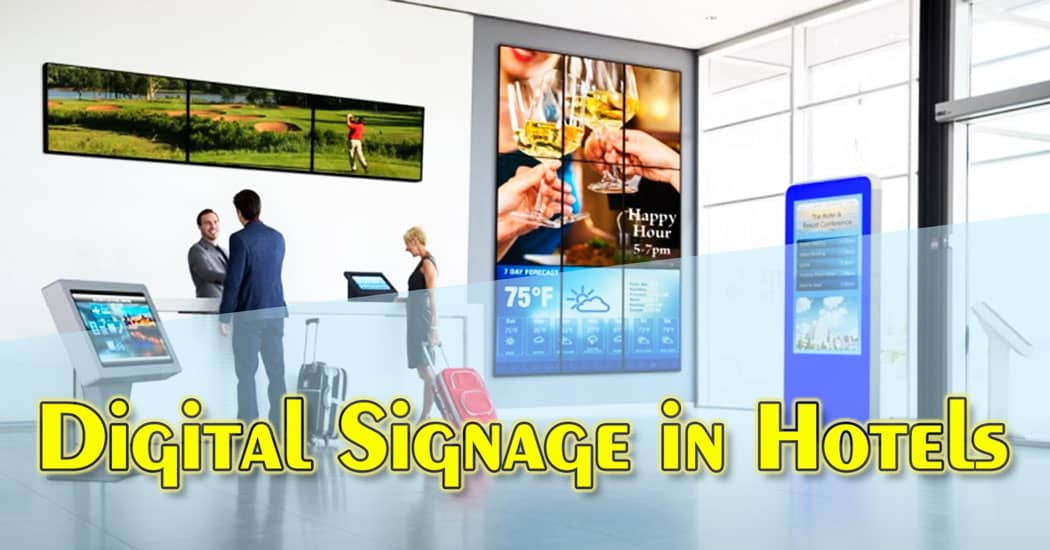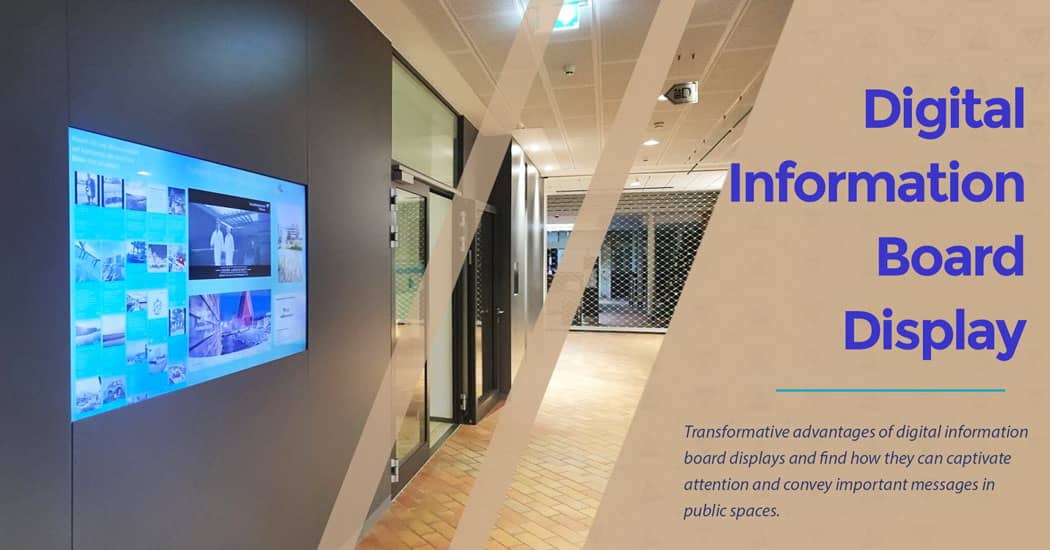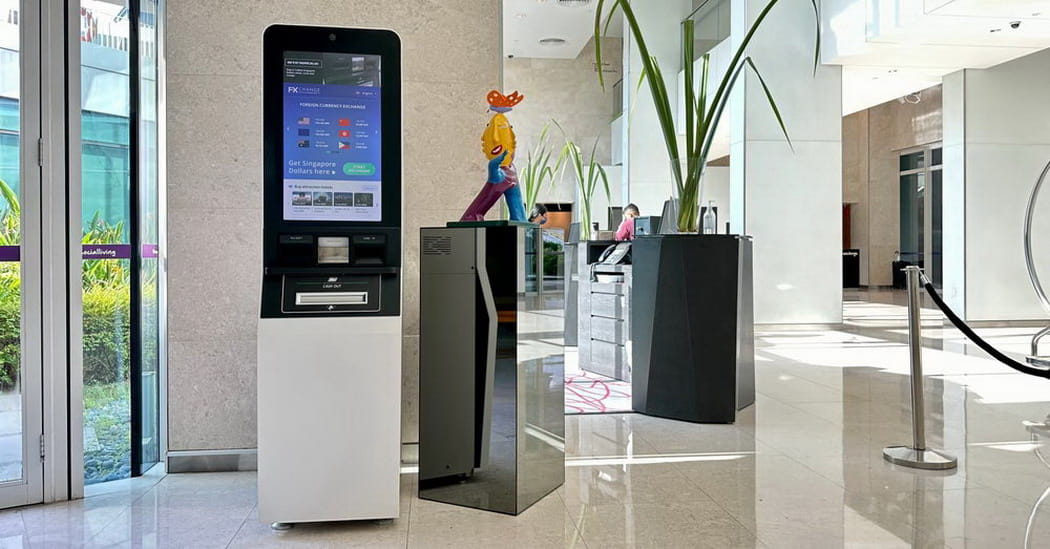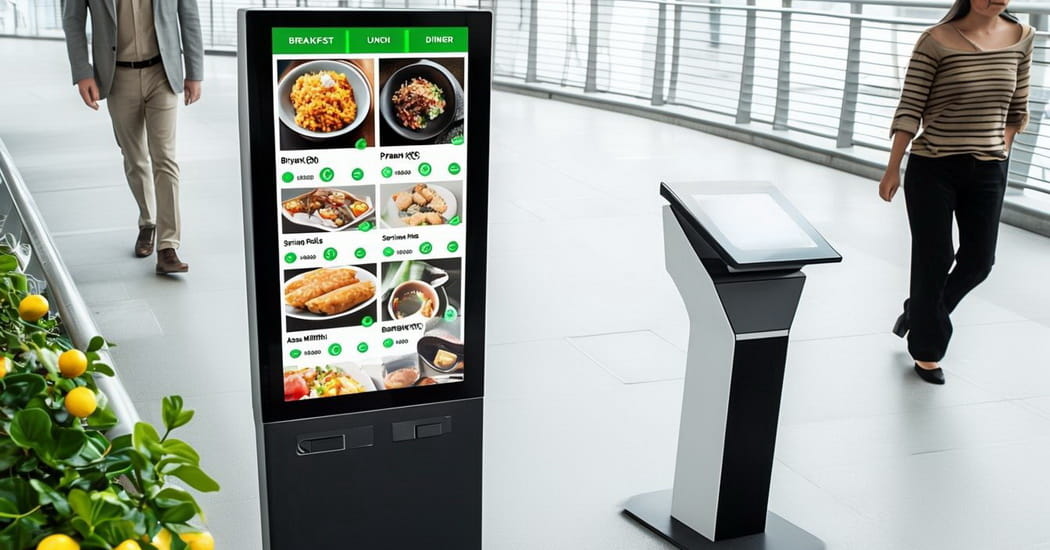
The Future of Service: Interactive Digital Kiosks Explained
In an era where technology drives engagement, interactive digital kiosks emerge as vital assets for businesses. This article explores their benefits, highlighting how they enhance customer interactions and streamline processes.
Businesses are constantly seeking new ways to engage customers and streamline operations, especially as the world continues shifting toward tech-driven experiences. Enter the interactive digital kiosks – a versatile, self-service tool that’s transforming industries from retail to healthcare.
Interactive digital kiosks are becoming extremely common in numerous public places. These include airports, shopping malls, and universities. Being interactive computer terminals, this digital kiosk technology offers information and services to users.
Benefits of Interactive digital kiosks
Kiosks are crucial in today’s fast-paced world and they play a significant role across various industries due to the range of benefits they offer. Here is a comprehensive overview of these benefits:
1. Improved Customer Experience
Interactive digital kiosks provide customers with a self-service option that can reduce wait times, provide convenience, and enable faster transactions, offering a seamless customer experience to visitors.
These kiosks minimize human interaction which enhances the experiences for people who avoid human interaction. Most importantly, they can also improve accessibility for customers with disabilities.

2. Increased Customer Engagement
Interactive kiosks offer engaging experiences that encourage users to actively participate and interact with the kiosk’s interface. Offering such interactive experiences help businesses and organizations improve customer satisfaction and thus, boost sales.
3. Enhanced Marketing
Promotional kiosks display products, provide information, and offer special promotions, which can help increase the brand’s reach and increase sales.
4. Manage Customer Flow
Interactive kiosks are often located in high-traffic areas. This is because kiosks are a powerful tool for managing customer flow. With their self-service options, queuing management, real-time updates, appointment scheduling, and feedback collection, Interactive digital kiosks can help reduce wait times, improve efficiency, and enhance customer experience.
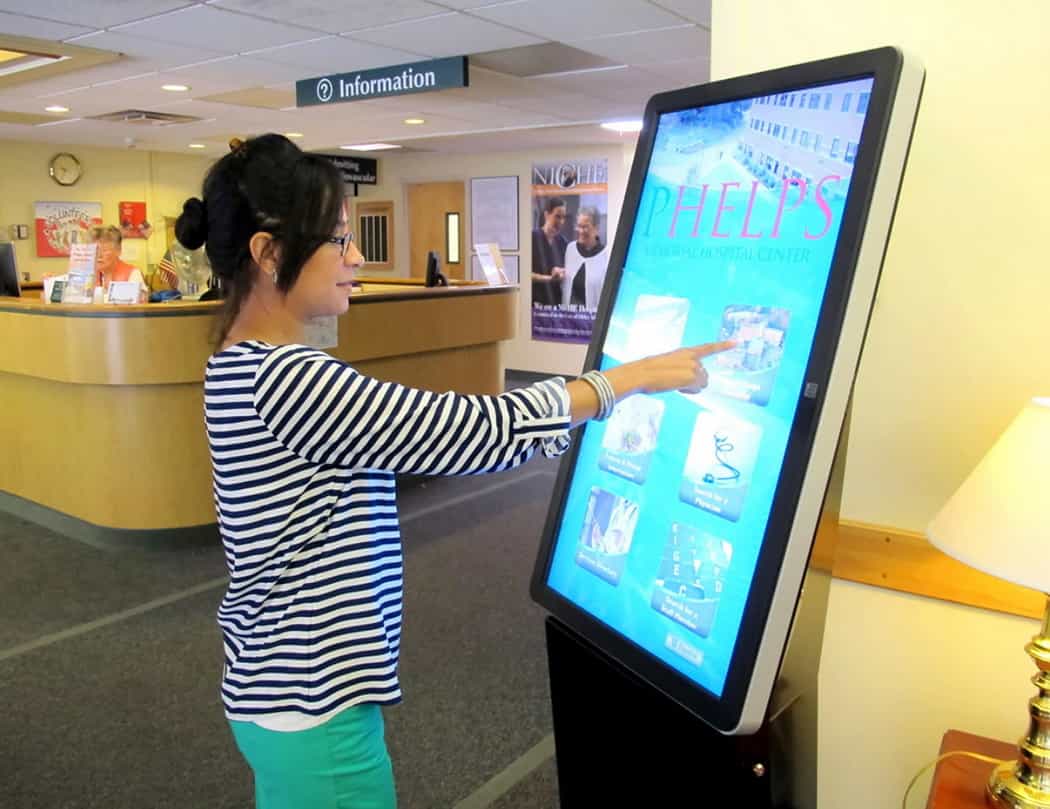
5. Improved Data Collection
Digital kiosks can collect valuable data on user behavior, preferences, and needs. This data can be utilized to draw insights and thus, improve the overall performance and efficiency of the service providers.
6. Save Cost
While deploying a digital kiosk may be expensive, the smart solution helps businesses save costs in the long term. By reducing labor costs, increasing efficiency, and improving accuracy, kiosks can help businesses save money.
Use Cases of Interactive digital kiosks by Industry
Interactive digital kiosks have revolutionized the way businesses interact with their customers. From their early use in the food service industry to the advanced, multifunctional devices we see today, kiosks have transformed customer service by providing personalized, efficient, and engaging experiences.
As technology continues to evolve, the potential applications of digital kiosks are bound to expand, making them an increasingly pivotal tool in the modern business landscape.

1. Retail
Retail businesses have been quick to adopt interactive retail kiosk to enhance the customer experience and streamline operations. Retail businesses are using kiosks for a range of purposes, from providing product information and recommendations, to offering self-checkout options and personalized promotions.
By leveraging the power of digital kiosk signage, retailers can create a more engaging and efficient shopping experience for customers, while also driving sales and improving customer loyalty.
2. Banking
The banking industry has also embraced the use of banking automation kiosks as a way to enhance customer experience and optimize service delivery. This technology is particularly useful during peak periods when banks are crowded and customer wait times can be long.
By leveraging the power of digital banking kiosks, banks can offer a more personalized and efficient service, improve customer satisfaction, and thus, increase sales.
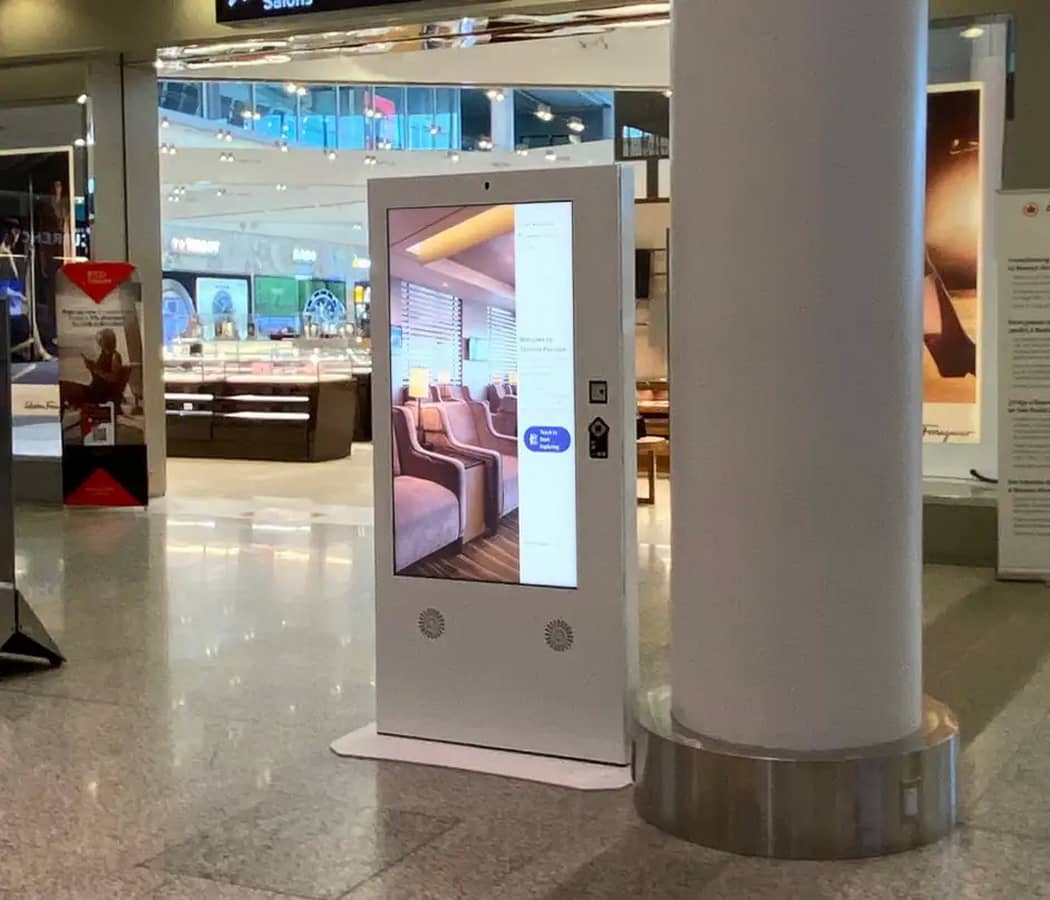
3. Airline
Interactive digital kiosks have become an increasingly popular solution in the airline sector. Touch screen kiosks allow customers to check in, print their boarding passes, and tag their bags, all from a single convenient location at airports. This not only speeds up the check-in process but also eliminates the need for customers to interact with airline staff, reducing waiting times and improving efficiency.
From providing self-service check-in and bag drop options to offering personalized recommendations and promotions, airport touchscreens kiosks can help airlines and airports create a more efficient and interactive experience for travelers.
4. Public
The public sector has also recognized the value of Interactive digital kiosks in enhancing service delivery and improving customer experience. Kiosks at public service centers enable customers to schedule appointments, receive tickets, and track their place in the queue and wait times, all from a self-service kiosk.
This simplifies the process for customers and reduces the staff’s workload, allowing them to focus on other tasks. This technology has been particularly useful during the pandemic, as it allows for contactless service delivery and reduces the need for customers to physically interact with staff.
By leveraging the power of public information kiosk, the public sector can create a more efficient, convenient, and engaging service experience for customers, while saving the overhead costs required to maintain high-quality standards of services.
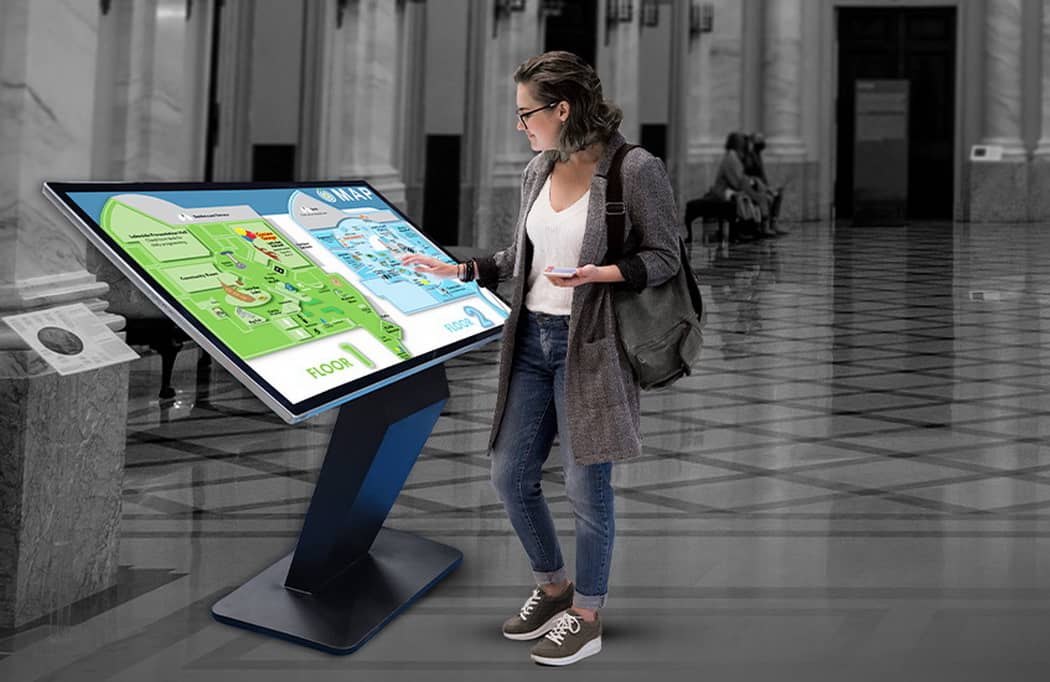
5. Healthcare
Digital kiosk display are becoming increasingly popular in the healthcare sector as a way to improve patient experience and streamline processes. Hospitals and clinics can use digital healthcare signage to provide patients with self-service check-in and appointment scheduling, access to medical records, and payment options.
This not only reduces wait times and frees up staff, but also improves patient satisfaction. Kiosks can also be used for education and communication purposes, providing patients with information on common medical conditions, treatment options, and healthy living.
Additionally, pharmacies can use kiosks for prescription dispensing and refills, allowing patients to easily and efficiently receive their medication. Overall, the use of Interactive digital kiosks in healthcare has the potential to improve efficiency, patient satisfaction, and communication in the industry.
Closely related post:
Latest updated post:
Latest products:







